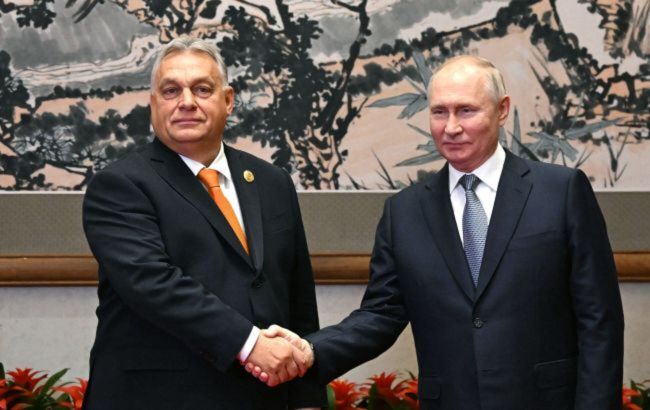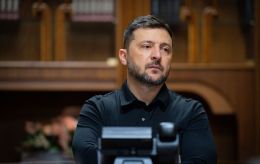Putin summoned Orban for closed-door meeting - Europe and US kept in dark
 Photo: Orban and Putin (Getty Images)
Photo: Orban and Putin (Getty Images)
The Hungarian prime minister’s upcoming trip to Moscow is raising questions among EU and NATO partners, as it is being prepared in an expanded format and includes discussions on energy and nuclear issues that are important for Budapest, according to the VSquare portal.
Preparation of visit and composition of delegation
The Hungarian head of government plans to visit Moscow on 28 November, with the trip being arranged with a large delegation.
Foreign Minister Peter Szijjarto, Minister of Construction and Transport Janos Lazar, and national security adviser Marcel Biro are expected to travel with him.
This trip was not coordinated in advance with NATO allies or EU structures, and it is doubtful whether the United States was informed either.
At the same time, European diplomatic circles believe the meeting may be part of Hungary’s regular pattern of maintaining contacts with the Kremlin.
Energy agenda
Energy issues have been declared a key focus of the talks. They have become particularly relevant following the US decision to grant Hungary a one-year exemption from sanctions related to Russian oil and gas.
The visit is expected to include discussions on further energy supplies and potential changes to transit arrangements.
Nuclear projects and possible deals
A separate block of talks will focus on nuclear energy. In particular, discussions are expected on the participation of Westinghouse in the construction of the Paks nuclear plant as a fuel supplier.
The report also notes that "nuclear issues will also be addressed."
Another topic will be the potential agreement under which the Hungarian company MOL could acquire Gazprom’s stake in Serbia’s NIS, which would reduce the risk of falling under US sanctions.
Political context
According to sources, the visit may be presented as an attempt to revive the idea of a short-term "peace summit" in Budapest involving Trump and Putin.
Earlier, Vladimir Putin stated that Moscow and Budapest are discussing a possible visit by the Hungarian prime minister.
Viktor Orban’s position on stopping EU financial support for Ukraine came as no surprise. Responding to journalists, deputy prime minister Taras Kachka stressed that such statements from Budapest had long been anticipated and are therefore seen as part of routine rhetoric that does not alter the overall approach to cooperation with European partners.
Viktor Orban, who maintains a pro-Russian line, insists that the EU should support the ultimatum-style "peace plan" for Ukraine pushed by the United States, while at the same time threatening to block the entire package of European support for Kyiv.

